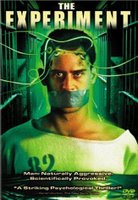parasite or parakeet? (time machine no. 2)
Sometimes I feel like a parasite, working as a science writer. I drop in on scientists--like a mosquito landing on, say, a scientist--and suck out a few ideas from them that they've mulled over for years, a few findings they've struggled to establish as fact. I swallow these and digest them and out comes--well, something else.
Maybe a different metaphor would be better. I'm like a mother bird who flies from tree to tree, hops around pecking the ground, searching for a few ripe fruits or edible seeds. Whatever I decide to swallow, I grind it up inside and then spit it back out in a form that's palatable for my children.
Anyway, whether I'm having a day when I feel more like a mosquito than a bird, I should keep in mind the times when scientists give props to science writers. I was interviewing an economist and he told me about how he found out what was going on in another area of economics through an article in Scientific American and it changed his outlook and his career path. Granted, the article was written by another economist, but still it was in the popular press. Or there's a physicist at my work who told me that the world is in greater need of more good science journalists than more good scientists.
And then in Bill Bryson's tour of science, A Short History of Nearly Everything, he talks about the physicists who discovered the microwave background radiation--light leftover from the early days of the universe that has given physicists some of the best clues to how the universe formed. They discovered it on accident, and didn't really know what it was they'd found, though some theorists had predicted it would be there. Bryson says that the New York Times reporter Dennis Overbye wrote that the physicists didn't fully understand what they'd found until they read about it in the New York Times.
I'd like to think this story is true. It's a great example of what good science writing can do: bring together findings from different areas of science--or even different niches within physics--and create a bigger picture. When journalists can write something that's news to the specialists, that's a coup.
I'm not sure how accurate the story is, though. I'm trying to turn up my BS detectors and be more skeptical. Though I haven't gotten burned by being too gullible in everyday life, I think more skepticism would help me as a journalist. The story about the physicists flatters the Times, so who benefits from the story? The Times. So it's suspect. But I don't really care enough to try to find out more about it, so I'll just have to put in that fuzzy mental area of things I'm not sure about.
Maybe a different metaphor would be better. I'm like a mother bird who flies from tree to tree, hops around pecking the ground, searching for a few ripe fruits or edible seeds. Whatever I decide to swallow, I grind it up inside and then spit it back out in a form that's palatable for my children.
Anyway, whether I'm having a day when I feel more like a mosquito than a bird, I should keep in mind the times when scientists give props to science writers. I was interviewing an economist and he told me about how he found out what was going on in another area of economics through an article in Scientific American and it changed his outlook and his career path. Granted, the article was written by another economist, but still it was in the popular press. Or there's a physicist at my work who told me that the world is in greater need of more good science journalists than more good scientists.
And then in Bill Bryson's tour of science, A Short History of Nearly Everything, he talks about the physicists who discovered the microwave background radiation--light leftover from the early days of the universe that has given physicists some of the best clues to how the universe formed. They discovered it on accident, and didn't really know what it was they'd found, though some theorists had predicted it would be there. Bryson says that the New York Times reporter Dennis Overbye wrote that the physicists didn't fully understand what they'd found until they read about it in the New York Times.
I'd like to think this story is true. It's a great example of what good science writing can do: bring together findings from different areas of science--or even different niches within physics--and create a bigger picture. When journalists can write something that's news to the specialists, that's a coup.
I'm not sure how accurate the story is, though. I'm trying to turn up my BS detectors and be more skeptical. Though I haven't gotten burned by being too gullible in everyday life, I think more skepticism would help me as a journalist. The story about the physicists flatters the Times, so who benefits from the story? The Times. So it's suspect. But I don't really care enough to try to find out more about it, so I'll just have to put in that fuzzy mental area of things I'm not sure about.













0 Comments:
Post a Comment
<< Home